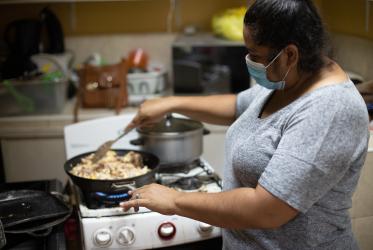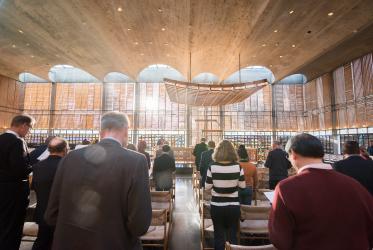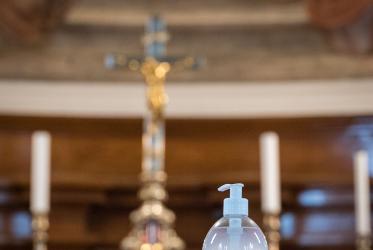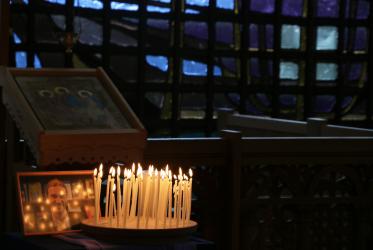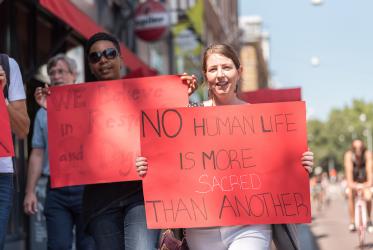Displaying 1 - 20 of 58
27 September 2022
Le COE publie des offres d’emploi à des postes de direction
27 January 2022
Dealing with traumas and healing of wounds
04 June 2019
Répondre aux traumatismes et guérir les blessures
04 June 2019
A faith-based, holistic approach to HIV and AIDS-care
13 March 2019
Faith and HIV treatment go hand in hand
06 March 2019
Turning mercy and compassion into action
04 March 2019
On the journey to HIV – bridging gaps, debunking myths
21 February 2019
Le Comité exécutif du COE aborde les questions d’actualité
07 November 2018
Le COE salue les nouveaux membres de la direction d’ACT Alliance
31 October 2018
Assisi: On the ecumenical pilgrimage into a more sustainable future
03 September 2018
What difference does dressing in black make?
02 August 2018

